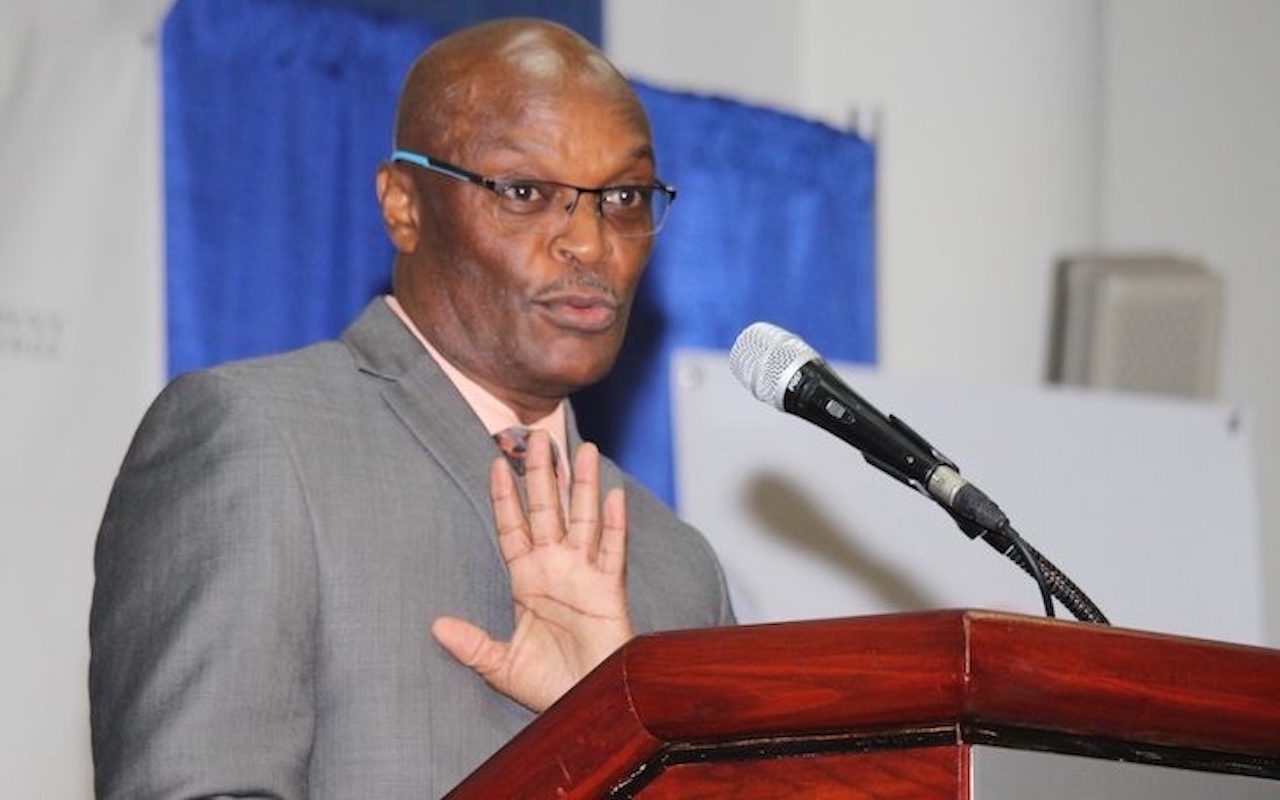The current Customs Act – newly 60 years old – is standing in the way of HM Customs properly detecting and confiscating illegitimate goods and causing Government to lose out on millions of dollars in revenue, Comptroller of Customs Owen Holder has suggested.
Holder has promised that the newly drafted Customs Bill will correct those anomalies, as it helps to improve transparency and provide for a modern and more effective customs operation that meets regional and international requirements when it comes to trade and border procedures.
These were among the issues that came under the microscope as the Barbados Chamber of Commerce (BCCI), customs officials and other business community figures came together for the first in a series of online consultations on the newly drafted Customs Bill, which is to go before Parliament.
Pointing out that the Customs was one of the island’s main border protection agencies, Holder said the outdated legislation was “constraining” social and economic activities.
The first Customs Act in Barbados was introduced in 1962, and it has undergone several amendments since.
“We know that Customs play a crucial role in the whole revenue collections process. We are currently at approximately 40 per cent of revenue, and that has the potential to grow as we modernize our processes,” Holder told the virtual meeting.
He said current legislation “restricts activities that detect cross-border movement of illegitimate trade, it inhibits the proper interdiction of illicit and counterfeit goods, and largely create non-tariff barriers to processes”.
Holder said with the old law, Bridgetown stood to lose some firms to other jurisdictions if the right legal environment was not put in place and the country did not fully comply with regional and international requirements.
Holder said:“The Customs Department is also cognisant of the high level of competitiveness existing in the market and the relative difficulty businesses face to succeed on the international marketplace. This has been emphasised even more in this time of the COVID-19 pandemic.
“In this regard, what we have found is that our legislation has become obsolete and fragmented and it does not adhere to the high standards required of the international customs organization.
“My department therefore intends to make every effort to reduce or eliminate barriers to trade, implement the international agreement that supports simplified procedures, and develop a legal framework that adheres to the high international standards.”
President of the BCCI Trisha Tannis said the modernization of the Customs Department required “exhaustive consultation” with stakeholders and adequate training of service providers in the sector.
At the same time, she called on private sector operators to modernize their internal processes to keep abreast with necessary changes.
But, she said while the private sector recognized the advantages to be gained from “the spirit and intent” of the proposed Bill “we also at this time would like to highlight our extreme discomfort with the significant level of fines and penalties that are currently drafted, and which we hope are still open to consultation”.
“While we clearly appreciate the requirement to be penal in the circumstances of a breach or violation of provisions, we are of the view that a one size fits all penalty, which is enormous and which does not graduate according to the grievance, and upon which the courts of law have no manoeuvrability as far as the quantum of the penalty, is excessively punitive,” declared Tannis.
Under the proposed legislation, individuals could face fines of up to $50,000 or jail time, or both.
Minister in the Ministry of Finance Ryan Straughn said “the intent is not solely focus on fines, but a lot of the reforms that we are putting in place. Critical reforms which are aimed at improving business facilitation is where we want to focus and position the legislation”.
He gave an assurance that Government would do all it could through policies to ensure business survival in the toughest of circumstances.
The new framework, which is being touted as a way to modernize the Customs Department and cut down on the time it takes to clear goods, makes provision for a customs officer to apply for a firearm.
Cheryl-Ann Cumberbatch, Deputy Comptroller of Enforcement, explained: “It states that the Comptroller may apply in accordance to the Firearms Act on behalf of an officer to carry a firearm. The officer must be well trained with the use of the firearm and the firearm should only be used for the preservation of life or the summoning of a vessel in cases where the Master fails to acknowledge or comply with the signal of the officer to stop the vessel or he refuses to permit the officer to board the vessel.
“The bill goes on to say that once the officer has acted in the performance of his duty and according to the law that he is discharged from every prosecution or penalty.”
The new bill also makes provision for the establishment of a tribunal, an appeals process, sharing of certain information, and timely refunds. (MM)




